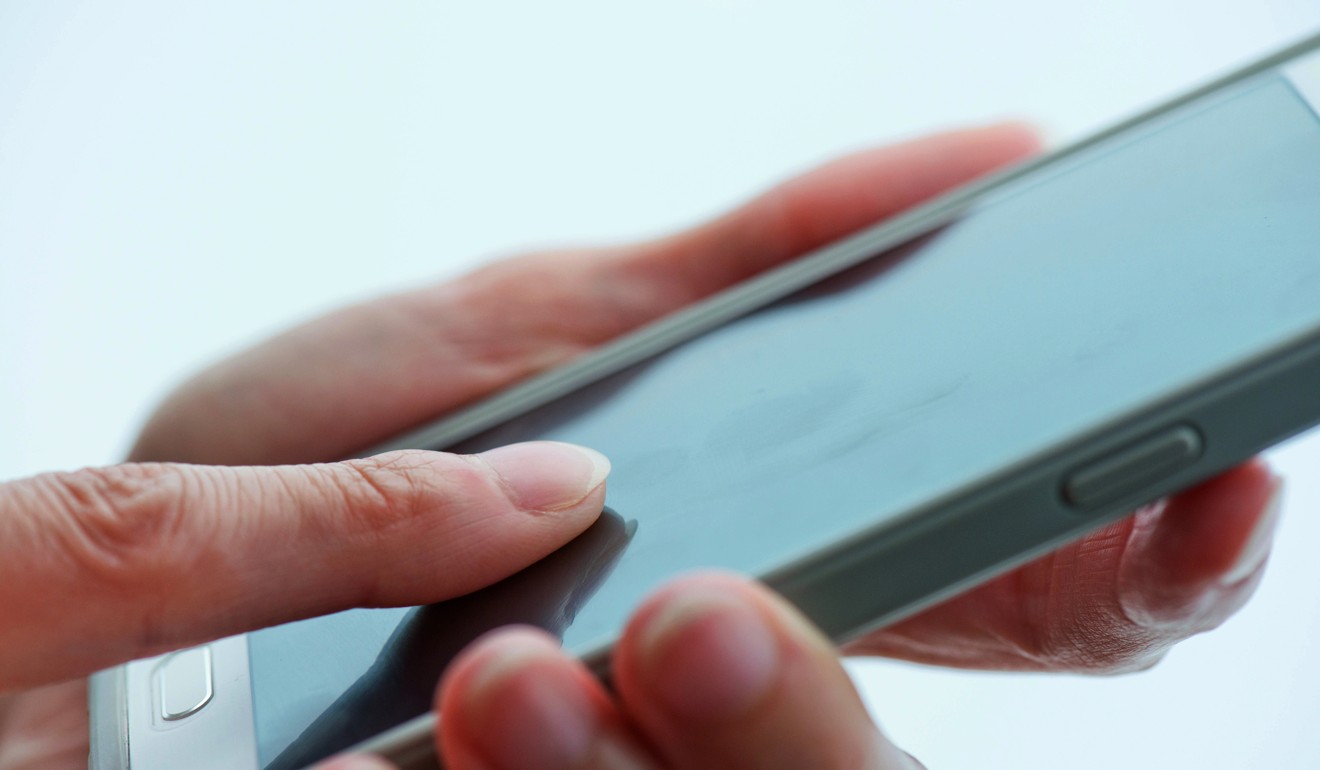
Hong Kong’s top court rules against use of ‘one-size-fits-all’ charge for smartphone crimes
- Charge of ‘obtaining access to computer for criminal or dishonest gain’ should not apply to person’s own devices, court says
- Landmark decision could force government to amend existing laws used to punish those who take upskirt photos and videos

Hong Kong’s top court has struck down the use of a “one-size-fits-all” charge often used in the prosecution of smartphone-related crimes, including the taking of upskirt photos and videos, opening legal loopholes that will make law enforcement difficult.
The landmark decision on Thursday meant the Department of Justice would have to re-evaluate 13 cases currently on hold, while facing possible appeals from those already convicted.
Legal experts already raised concerns that other available charges would not be sufficient to plug the loopholes and new legislation would be needed.
In Thursday’s ruling, the Court of Final Appeal unanimously dismissed the justice secretary’s appeal, upholding a lower court’s decision and finding that the charge of “obtaining access to a computer for criminal or dishonest gain” should not apply to a person’s own phone or computer.
The ruling arose from the prosecution of four primary schoolteachers, Cheng Ka-yee, Tsang Wing-shan, Wong Pui-man and U Leng Kok in 2016.
They were charged with the offence after they were accused of leaking entrance exam questions using their smartphones.
The charge, under Section 161 of the Crimes Ordinance, was often relied on by prosecutors for offenders who took upskirt pictures with their mobile phones – which could be considered computers.
While the teachers were acquitted at a magistrates court, the prosecutors appealed the decision all the way to the top court.
The Court of Final Appeal was asked in February to determine whether the charge, introduced in the early 1990s to prevent cybercrime, would cover acts where alleged offenders used their own devices, as in the teachers’ case.

The Department of Justice argued that allowing the prosecutors to press charges in such a way would be beneficial to Hong Kong from a public policy perspective. But the top court disagreed.
“That is not the function of the court,” non-permanent Court of Final Appeal judge Robert French wrote in a judgment on behalf of his four fellow justices, Chief Justice Geoffrey Ma Tao-li and Court of Appeal judges Roberto Ribeiro, Joseph Fok, and Andrew Cheung Kui-nung.
“The court seeks to ascertain the purpose of the statute to inform its construction. It does not identify a purpose which it thinks would be beneficial and then construe the statute to fit it.”
The judges, having examined the legislative history, concluded the “computer” in the original charge would have meant a device not owned by the perpetrator. This could be gleaned from the words “obtain” and “access”, French explained.
As a matter of language, one always ‘obtains’ access to something to something to which one did not have access before
“As a matter of language, one always ‘obtains’ access to something which one did not have access to before,” he said.
The court heard the phrase “with or without due authority” was mentioned during debates preceding the legislation, which would extend the offence to perpetrators using their own devices. But French noted the phrase never made it to the enactment.
Several prosecutions involving the problematic offence ground to a halt after appeal court judge Pang Chung-ping refused last August to convict the schoolteachers based on the same finding.
Police received 439 reported cases in relation to obtaining access to a computer with dishonest intent in 2018 with 121 people arrested.
Before Thursday’s ruling, lawmakers and members of the legal sector had called for a change to the law, which some have decried as a one-size-fits-all charge, deployed whenever a smartphone is involved in a crime.
A justice department spokesman said it would liaise with law enforcement agencies to deal with the remaining cases.
It warned that charges for tangible offences, such as theft and fraud, were still applicable to the virtual world, while the criminal charge in this appeal would still catch hacking activities.
Former director of public prosecutions Grenville Cross said the justice department had been acting in good faith all these years, though the Court of Final Appeal made it clear the offence had its limitations.
The city’s Law Reform Commission proposed criminalising voyeurism .
Defence counsel James Tse Ying-kuen said his client, Wong, was pleased with the result following five years of ligation. “Justice has been done,” he said.
The four teachers had allegedly leaked pictures and copies of questions for an entrance examination at the Church of Christ in China Heep Woh Primary School via WhatsApp and email in June 2014.
The questions found their way to parents, some of whom had asked the teachers to refer their children to the school.
But they were acquitted in 2016 by magistrate Veronica Heung Shuk-han, who failed to find any dishonest intent in the acts.